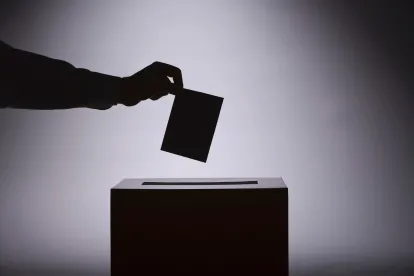A U.S. District Court judge today vacated an FEC regulation that limited the degree to which corporations and labor unions must disclose their donors when they pay for an Electioneering Communication. Van Hollen v. FEC An Electioneering Communication is a broadcast, cable or satellite communication that features a federal candidate, airs within 30 days of a primary, convention or caucus or 60 days of a general, special or runoff election, and (for ads that don’t involve presidential candidates) is targeted to the relevant electorate. Electioneering Communications are commonly called “issue ads.” Once a corporation or union spends more than $10,000 a year on Electioneering Communications, it has 24 hours to file a report with the FEC. At issue in today’s court decision was which donors a corporation or union must identify on that disclosure report.
The regulation struck down today limited disclosure to those donors who gave in excess of $1,000 to the group “for the purpose of furthering electioneering communications.” 11 C.F.R. 104.20(c)(9). With that rule now vacated, corporations and unions must disclose all donors who gave $1,000 or more to the group in the year the Electioneering Communication was distributed, as well as all donors who gave $1,000 or more in the preceding year, regardless of whether they gave with the intention of furthering the electioneering communication. There is an exception available for corporations or unions that create a special segregated bank account into which only individuals contribute, and only fund their Electioneering Communications from that account. Those entities may disclose only the donors to that segregated account.
Immediate Effect
Unless a stay is granted, this decision will have an immediate effect on the Louisiana Senate race, where we are currently within 60 days of the runoff election on December 6th. Thus, any group that pays for a broadcast, cable or satellite ad in Louisiana that features an identifiable candidate in the Louisiana Senate race, and does not expressly advocate the candidate’s election or defeat, between today and the election must include in its disclosure report all “donors” who “donated” to the group from January 1, 2013 to the present, unless it establishes and funds its issue ads from a segregated Electioneering Communications account.
In truth, however, it is likely that no entity will file such a report unless it unwittingly stumbles into having to comply with today’s decision. Any corporation or labor organization that wants to influence the Louisiana Senate runoff can return to the same level of disclosure that existed prior to today’s decision simply by editing its ad to include an explicit call to vote for or against the candidate that appears in the ad. This odd outcome results from a quirk in the law; by statute, sponsors of ads that contain express advocacy (i.e., Independent Expenditures) must disclose the identities of only those who made a contribution “for the purpose of furthering” the independent expenditure, the same lower level of disclosure of the sponsor’s donors imposed by the Electioneering Communications regulation that was just struck down. While the FEC leveled the playing field by requiring the same level of donor disclosure for Independent Expenditures and Electioneering Communications when it adopted the now-struck regulation, today’s decision leaves us with an upside-down world, where the more explicit you are about trying to influence the election, the less you must disclose about your donors.
Longer Term
Outside of Louisiana, this decision will have less immediate effect. In the first instance, that is because—aside from a rare special election—we are a year away from being close to 30 days before a primary or 60 days before a general election. In addition, this decision by a federal trial court in Washington is unlikely to be the last word on the issue, with plenty of time to appeal and raise constitutional challenges before the Electioneering Communications window opens. Indeed, the D.C. Circuit previously invalidated an earlier opinion striking down the regulation by this same District Court judge.
In addition, this issue could rise to the Supreme Court, and put to the test just how far Justice Kennedy and those who joined in the sections of the McCutcheon and Citizen United decisions that praised disclosure are willing to go. It is far from clear that a case such as this—where the federal government regulates speech on issues not candidates, by groups that have a primary purpose other than influencing elections, and imposes up to two years of retroactive disclosure of the group’s donors if it speaks out close to an election—would be the best set of facts for reform groups to test how much disclosure the government may impose on election related speech.




 />i
/>i
